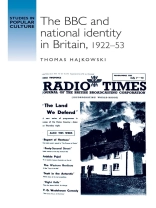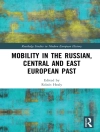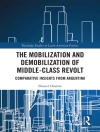Examining the ways in which the BBC constructed and disseminated British national identity during the second quarter of the twentieth century, this book is the first study that focuses in a comprehensive way on how the BBC, through its radio programs, tried to represent what it meant to be British.
The BBC and national identity in Britain offers a revision of histories of regional broadcasting in Britain that interpret it as a form of cultural imperialism. The regional organization of the BBC, and the news and creative programming designed specifically for regional listeners, reinforced the cultural and historical distinctiveness of Scotland, Wales, and Northern Ireland. The BBC anticipated, and perhaps encouraged, the development of the hybrid “dual identities” characteristic of contemporary Britain.
This book will be of interest to scholars and students of nationalism and national identity, British imperialism, mass media and media history, and the “four nations” approach to British history.
Tabla de materias
Acknowledgments
Introduction
1. “Jolly proud you are a Britisher:” empire and identity, 1923–39
2. From the war to Westminster Abbey: the BBC and the empire, 1939–53
3. The BBC and the making of a multi-national monarchy
4. Rethinking regional broadcasting in Britain, 1922–53
5. Broadcasting a nation: The BBC and national identity in Scotland
6. BBC broadcasting in Wales, 1922–53
7. This is Northern Ireland: regional broadcasting and identity in “Ulster”
Conclusion
Select Bibliography
Index
Sobre el autor
Thomas Hajkowski is an Assistant Professor of History at Misericordia University in Dallas, Pennsylvania












